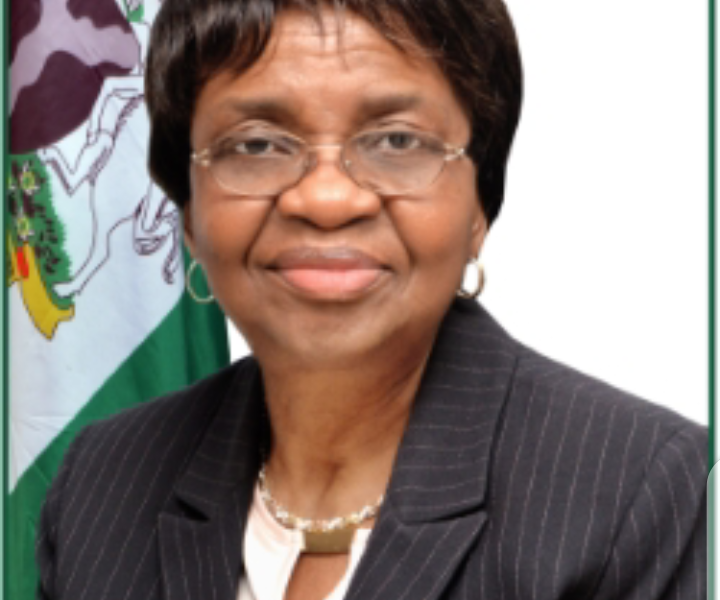The history of international women’s day can be traced back to about a century ago when a number of women staged a protest match to demand for the rights of women to vote during elections in New York, United States of America.
In Nigeria, women like the late Queen Amina of Zauzau, late Fumilayo Onikulapo Ransom Kuti, late Professor Dora Akunyili, the former minister of finance and presently the DG of World Trade Organisation, Dr. Ngozi Okonjo-Iweala among others played an outstanding role in making voices of women heard.
As the world commemorate the international women’s day, Nigerians have continued to look into how far women have fared when it comes to gender equality. Because, all over world, the growing importance of gender equality has been recognized and accepted.
Reacting to how women have fared so far in Nigeria, a foremost human rights Activist, Dr. Joe Odumakin said; “truth is, women have not been adequately represented in governance in Nigeria. She however admonished the women folks to take their rightful position in the country by forming a coalition among theirselves.
For her, “when it comes to grabbing a seat of leadership position in Nigeria by women, there is need for strong legislation that will support the struggle for gender equality like it’s done in other parts of the world.”
On his part, Chairman, center for anti corruption and open leadership, Debo Adeniran said; “women should be given political appointment based on merit. Like the previous administration, women were appointed based on agitations that were made over the years not because the men allow them to occupy the rightful position that they deserve.”
He pointed out that, “women should be recognised based on their own merit rather than being compensated. The current administration has also recognised women in one way or the other.” He noted
He also called on women to support one another in politics, “the international body recognise our women more than we do, and the moment they put theirselves together to project their qualities the men folks will find it difficult to undermine them. Therefore, women will begin to win elections as governors local government chairmen, even as president.” He added
Buhari led administration has Zainab Ahmed as Minister of finance, budget and national planning, Sadiya Umar Faruk as the minister of desaster management and social development, Pauline Talen as the minister for women affairs, Gbemisola Saraki as the minister of state for transportation, Folashade Mejebi Yemi-Esan as the head of civil service of federation among the women folks in the cabinet.
The framework for human development (UNDP: 2012) is reflected in the broad vision espoused in the Millennium Development Goals, the internationally agreed set of time-bound targeted goals for ensuring gender equality and advancing opportunities in diverse sectors of the global economy.
The convention on the elimination of all forms of discrimination against women adopted in 1979 by the UN General Assembly and accepted to by 180 states outlines the rights and equality of women, their freedom from discrimination and equality under the law.
The gap between the Millennium Development Goal of promoting Gender Equality and its actualisation in Nigeria, however, is the action dilemma by the Nigerian government that is typified by mis-governance, lack of political will, the prevailing patriarchal culture, false public investment and the absence of adequate productive capacity that will create the opportunities for women empowerment and development.
This problem explains the inevitability and imperative of a pragmatic action-based approach that will translate gender equality programs into concrete reality. This is especially because the task of achieving the target of gender equality in Nigeria in the coming years requires not just passive policies that are separate and distinct from doing, but an active process embodying proper analysis, goal definition, action programs and monitoring results.
Understanding this fact, Lagos State government under the then leadership of Babatunde Fashola approved six months of maternity leave for female public servants who gave birth to new born babies. The essence of the leave according to the government of Lagos State, was to enable mothers breast feed babies to optimal standard.
Also, Kogi state government, under the leadership of Governor Yaya Bello did same thing by extending maternity leave to six months. Yaya Bello is known for promoting gender equality under this administration of president Mohammed Buhari by appointing a woman as his secretary to the state government, so also the only governor with female as his bodyguard.
In the same vein, Governor Nasir El-rufai of Kaduna State, the first governor from Northwest Nigeria to appoint woman as his deputy approved six months for maternity leave for female public servants in the state.
Political parties in Nigeria have also encouraged women in Nigeria to join politics by granting them waivers in some cases. However, pundits say that, for political parties to achieve that, there must be a sincerity of purpose.
The problems of gender inequality in Nigeria has been on for decades, as the modern society has redefined the role of a woman, which is vastly different from what it’s used to in the middle ages. However, patriarchy and gender inequality is always a touchy topic when it comes to Africa because it is largely influenced by religious beliefs and the diverse cultures.
In another development, the United Nations (UN) said that the impact of the ravaging COVID-19 may lead to eight million more women than men sliding into extreme poverty in sub-saharan Africa in this year. The world health organisation (WHO) regional director for Africa, Dr. Matshidiso Moeti stated this in a message to mark the 2021 international women’s day.
According to her, “inequality that cause disadvantaged to women have been exacerbated during the pandemic. The pandemic will have long term impacts on the social and economic fabric of our societies, including progress towards gender equality.”
On the intervention efforts meant to curb the impact of the problem, she disclosed that WHO is providing guidance and technical support to governments to ensure the continuous delivery of essential gender-responsive services and to assess the barriers girls and women face in accessing these services.
The above position of WHO is what makes gender equality and women’s empowerment become one of the central themes in global treaties, covenants and declarations principally due to the understanding that it is a catalyst to clear-cut development strategies which is targeted at poverty reduction, improved living standards, good governance and profitably productive investments that are critical to the creation of an enlarged capacity that provide men and women equal opportunity and unrestrained access to decision-making and policy implementation institutions and processes.
Essentially too, African countries have demonstrated some measure of concern about human development
problems by initiating specific developmental goals and strategies and accepting the critical role of gender equality or parity in the developmental process. The African Charter on Human and People’s Rights (ACHPR) adopted in
1981; the Women Right Protocol of 2003; the ECOWAS Protocol on Democracy and Good Governance and the New Partnership for African Development (NEPAD) adopted in 2001 are some of the initiatives that are linked
with the Millennium Development Goals and at the same time, a testimony to commendable response in the
African continent.
Also, it’s worthy of note that, pomoting gender equality which is the foundation of the actualisation of the protection of fundamental human rights is critical to the whole concern for human development that centre on allowing people to lead a life that they
value and enabling them to realize their potentials as human beings. Realizing the growing need for gender equality is also germane to the survival and development of children and the building of healthy communities,
societies and nations.









